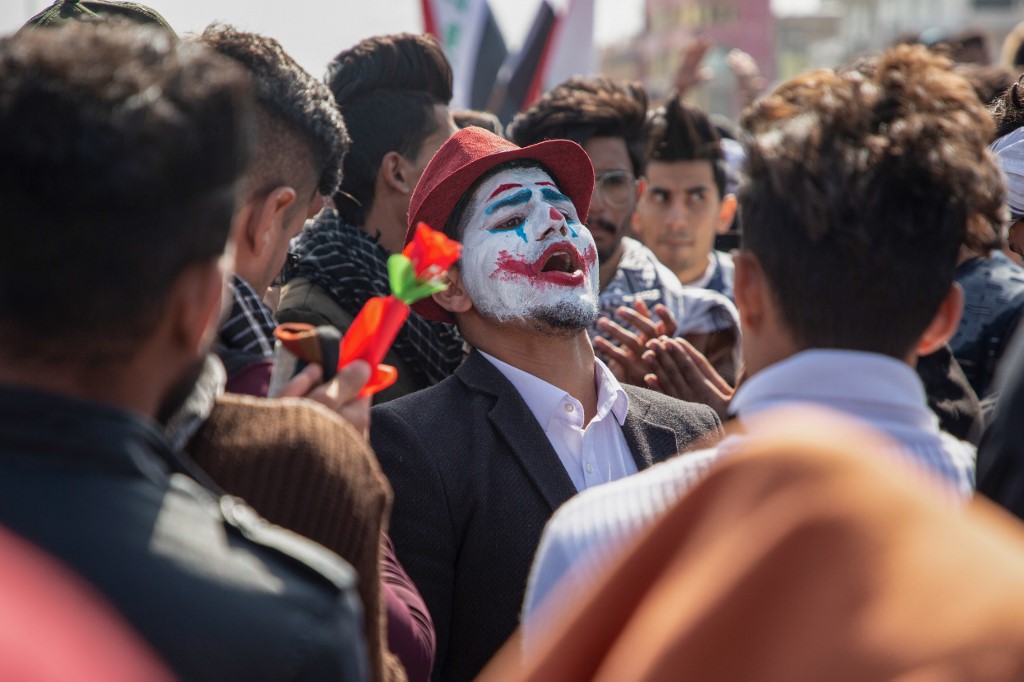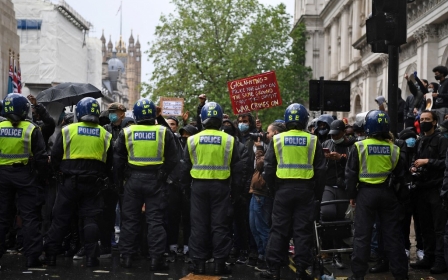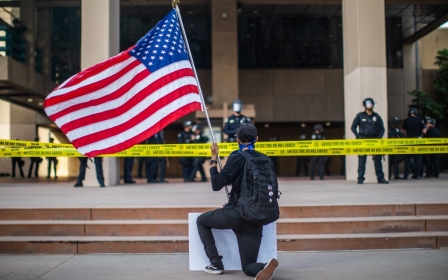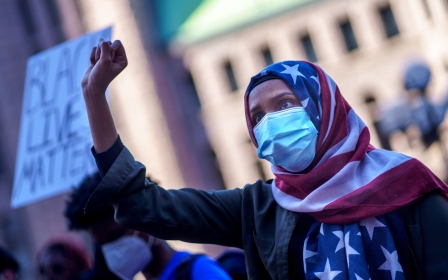What US protests reveal about 'American exceptionalism'
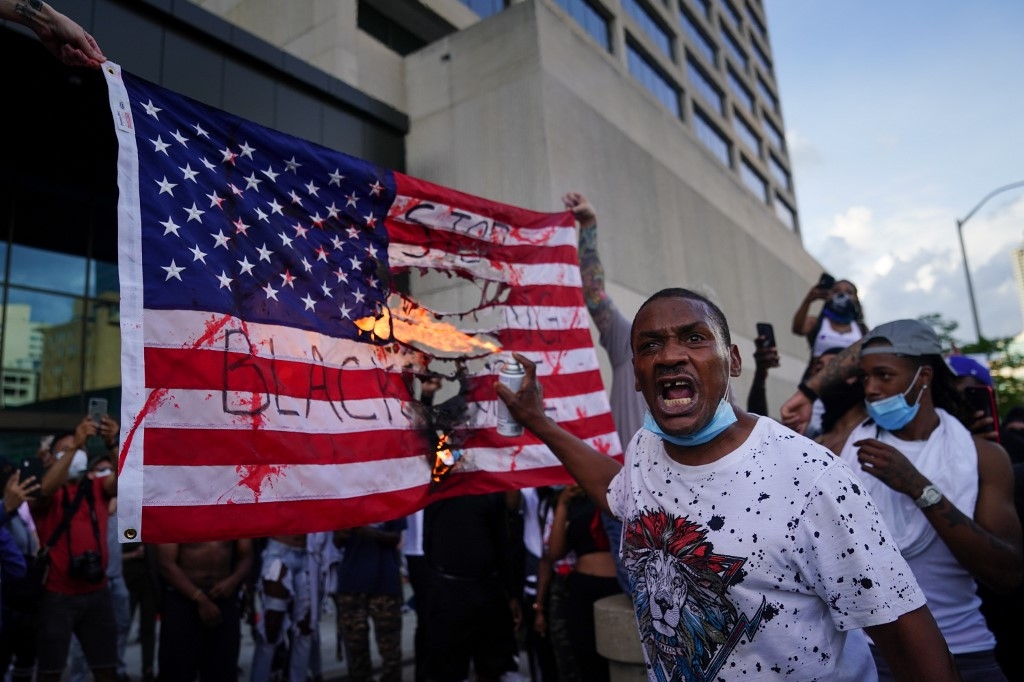
Amid a prevalent narrative that we are witnessing the decline of the American order, the globalisation of protests sparked by the killing of George Floyd at the hands of US police raises interesting questions about the country’s place in the popular conception of people worldwide.
As protests continue to spread across the US in reaction to the brutal killing, one is struck by the degree to which it has captivated so much of the world - particularly as Floyd is unfortunately just one more victim in a long list of African Americans killed by police under questionable circumstances.
There appears to be an inbuilt need in the American psyche that... interprets what is happening in their own society as a reflection of the rest of the world
Drawing comparisons to the Arab Spring and ongoing protests in Lebanon and Iraq, the systematic violence and inequality at the root of Floyd’s killing seems to have hit a nerve with people all over the world facing their own injustices.
Yet, the local circumstances and the degree of violence perpetrated by governments and their supporters in those countries differ significantly from what is unfolding in the US.
As the Intercept’s Murtaza Hussain tweeted: “It is generally never good but when people say government X or Y has ‘gassed its own people’ the type of gas used in each case happens to be an important distinction.”
New MEE newsletter: Jerusalem Dispatch
Sign up to get the latest insights and analysis on Israel-Palestine, alongside Turkey Unpacked and other MEE newsletters
While one-to-one comparisons with the situations in Iraq, Lebanon and elsewhere may thus reflect a certain degree of hyperbole, there are clearly structural issues at play that allow people around the world to empathise with the current state of affairs in the US.
It’s possible that the rapid globalisation of protests and the widespread feelings of solidarity with African Americans - even by those who might not fully understand the centuries of systematic discrimination and oppression to which this community has been subjected - points to a US-led liberal order that remains stronger, at least ideologically, than the “American decline” narrative suggests.
It is perhaps more likely that this reflects the extent to which a globalised American culture remains a force to be reckoned with.
Solidarity and sympathy
The widespread use of Joker masks at protests around the world is, on one level, indicative of this.
While the Yellow Vest protests were raging across France, the yellow vests themselves did not become a cultural icon for protesters, with the exception of a right-wing fringe. An attempt to use the vests to rally people in Egypt largely fizzled out after authorities banned their sale.
In many ways, the level of solidarity and sympathy with US protesters around the world is a surprising development - although for many Americans, it may seem like a natural outgrowth of what they see as their exceptional place in the world.
Conveniently left out of mainstream discussions in the US that cite similarities between their current situation and those in the Arab world and elsewhere, is the fact that the violence and injustices perpetrated against people from the Middle East, Africa and Latin America have historically been carried out either by US-backed regimes or by the US itself.
This is not to take away from genuine efforts to build solidarity, badly needed in the face of global racism, injustice and inequity.
At the same time, the degree to which comparisons are being made, and the way the debate has been framed by mainstream Americans, reflects the omnipresent notion of “American exceptionalism”.
There appears to be an inbuilt need in the American psyche that - even if well-intentioned - interprets what is happening in their own society as a reflection of the rest of the world. This is, more often than not, a one-way street. When it comes to the suffering of the “Other” - those in Africa, the Middle East, Asia and Latin America - solidarity is largely absent.
Deep-rooted racism
While this undoubtedly reflects a deep and often subconscious racism that is not unique to the US, it also demonstrates a sort of amnesia, or selective memory, that characterises the US narrative of exceptionalism.
That may now change. Amid a global crisis and a host of unknowns about what lies ahead, the US may wake up to the realisation that it is not so exceptional, after all.
The world has seen through the veneer of American exceptionalism. Corruption, government mismanagement, systematic injustices, police brutality and civil strife have exposed a dark underbelly that arguably represents at least one foundational element of US society.
While many observers have associated this shift with the Trump presidency, this is a good time to reflect on whether that is truly the cause, or merely a reflection of a deeply rooted social malaise that has gone untreated.
Ultimately, the global outrage over Floyd’s killing suggests that the idea of “America”, however much it contrasts with reality, remains something that many around the world are willing to believe in.
The views expressed in this article belong to the author and do not necessarily reflect the editorial policy of Middle East Eye.
Middle East Eye delivers independent and unrivalled coverage and analysis of the Middle East, North Africa and beyond. To learn more about republishing this content and the associated fees, please fill out this form. More about MEE can be found here.



